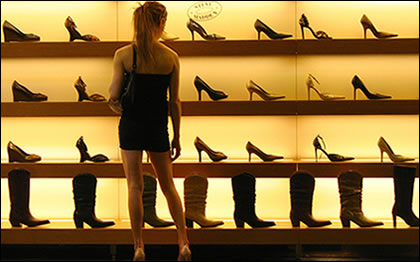Experiences Beat Possessions Hands Down

The following article is a great insight on how important experiences are to us. It’s not really about the things that we do or the things that we buy. Deep down it’s about how we feel when we do those things, or how we feel when we think about those things. Everything we do carries an emotional connection with it.
Material purchases include things like clothing, gadgets, computers and so on. The task this group had was only slightly different. Examples of experiential purchases are meals out, admission tickets to concerts and travel.
1. Experiences improve with time (possessions don’t).The reason why experiences improve with time may be because it is possible to think about experiences in a more abstract manner than possessions. For example if you think back to a fantastic summer from your youth, you might easily remember an abstract sense of warm sunshine and exuberance, but you’re less likely to remember exactly what you did day-by-day. On a moment-by-moment basis you might have been quite bored, although you’ll tend not to remember that.
Material possessions are harder to think about in an abstract sense. The car you bought is still a car, that great new jacket you picked up cheap is still just a jacket. It’s more likely the experience of that summer has taken on a symbolic meaning that can live longer in your memory than a possession.
2. Experiences are resistant to unfavourable comparisons It’s well established that social comparisons can have a huge effect on how we view what might seem like positive events. One striking example is the finding that people prefer to earn $50,000 a year while everyone else earns $25,000, instead of earning $100,000 themselves and having other people earn $200,000 (Solnick & Hemenway, 1998).
In other words it’s not about how much we earn, it’s about how much we earn in comparison to other people. It’s the social comparison, then, not the actual amount of money, that affects how we feel about our earnings.
Experience, however, seems to be more resistant to these sorts of unfavorable comparisons. To explain this phenomenon, Van Boven puts forward the idea that it is because of the unique nature of experience. It’s more difficult to make an unfavorable comparison when there is nothing directly comparable. After all, each of our youthful summers is different (even if only a little).
3. Experiences have more social value There are two reasons experiences have more social value than possessions. First, experiences tend to encourage social relationships and increased social relationships are good for our happiness. Second, it is more socially acceptable to discuss our experiences with others. People who bang on about their possessions are considered much less likeable than those who talk about their holiday adventures.
See full story on spring.org.uk
